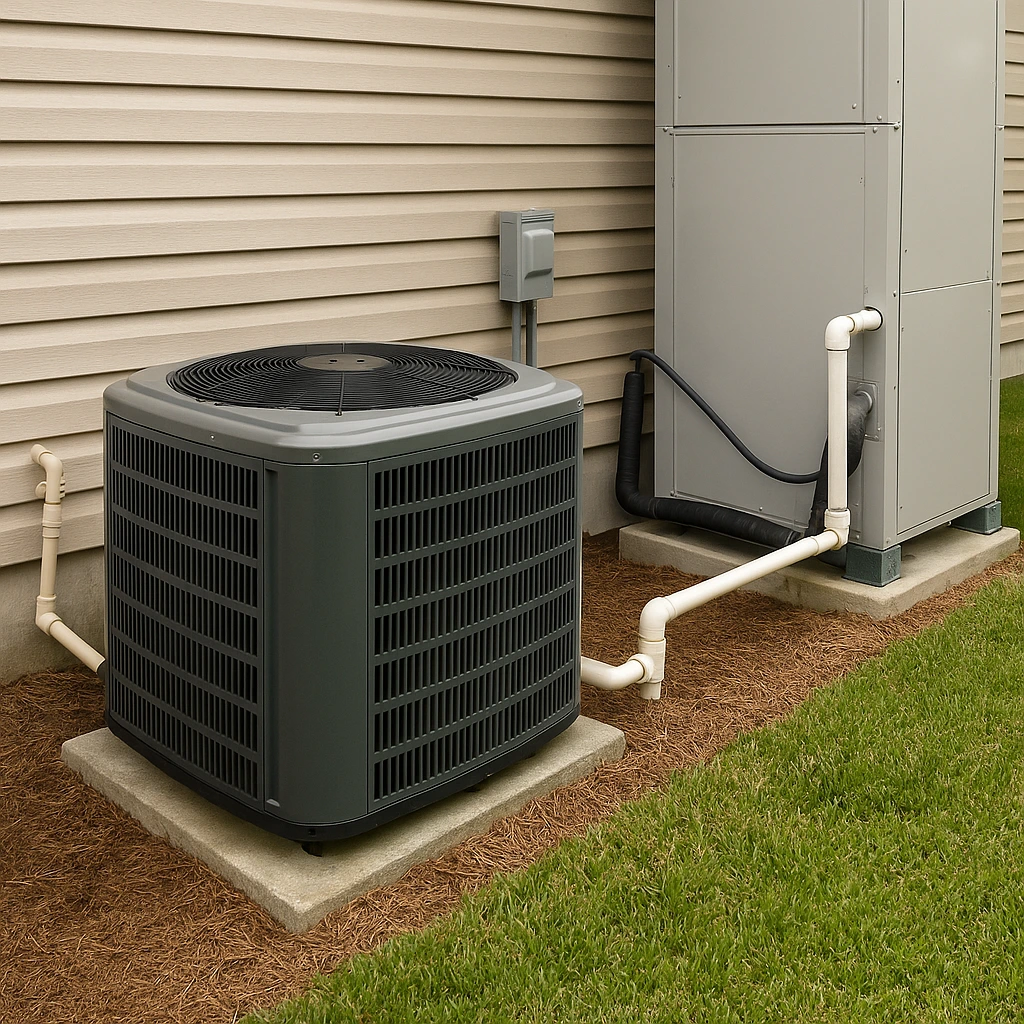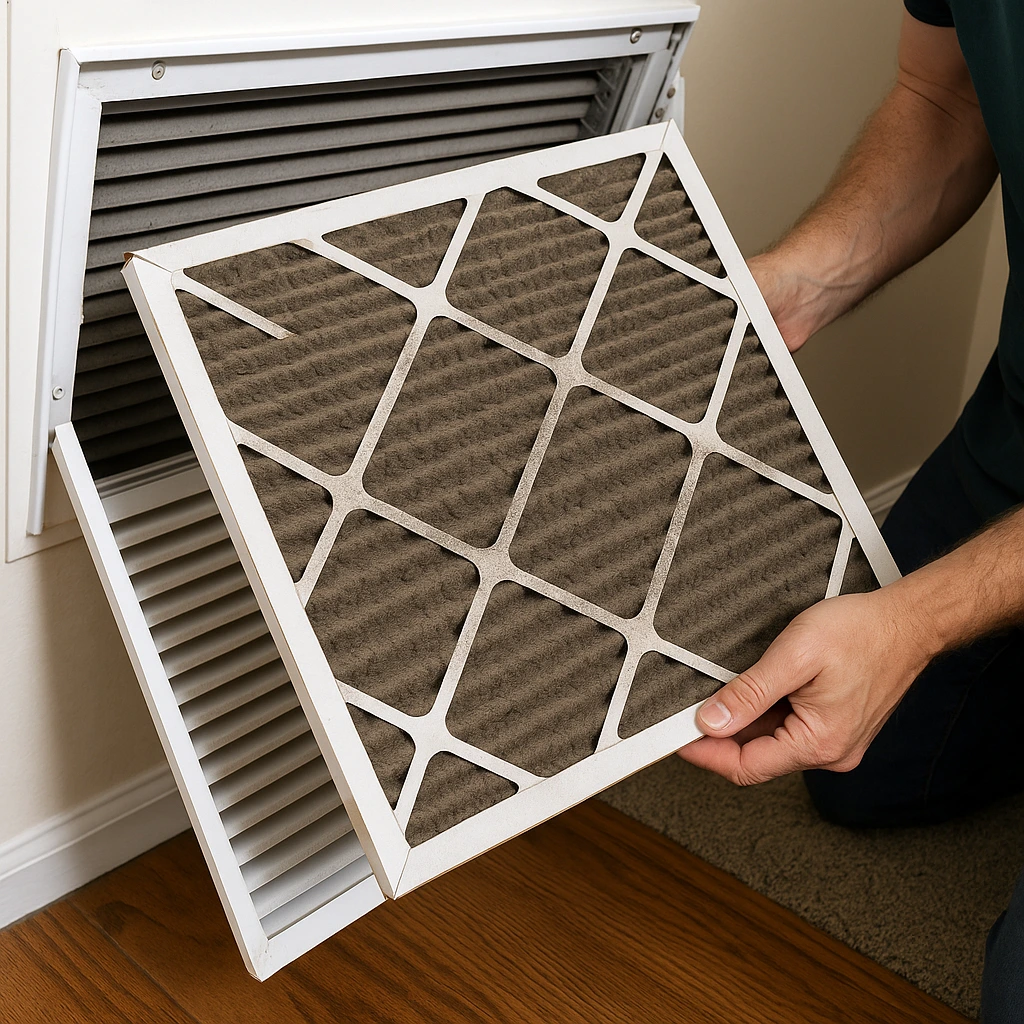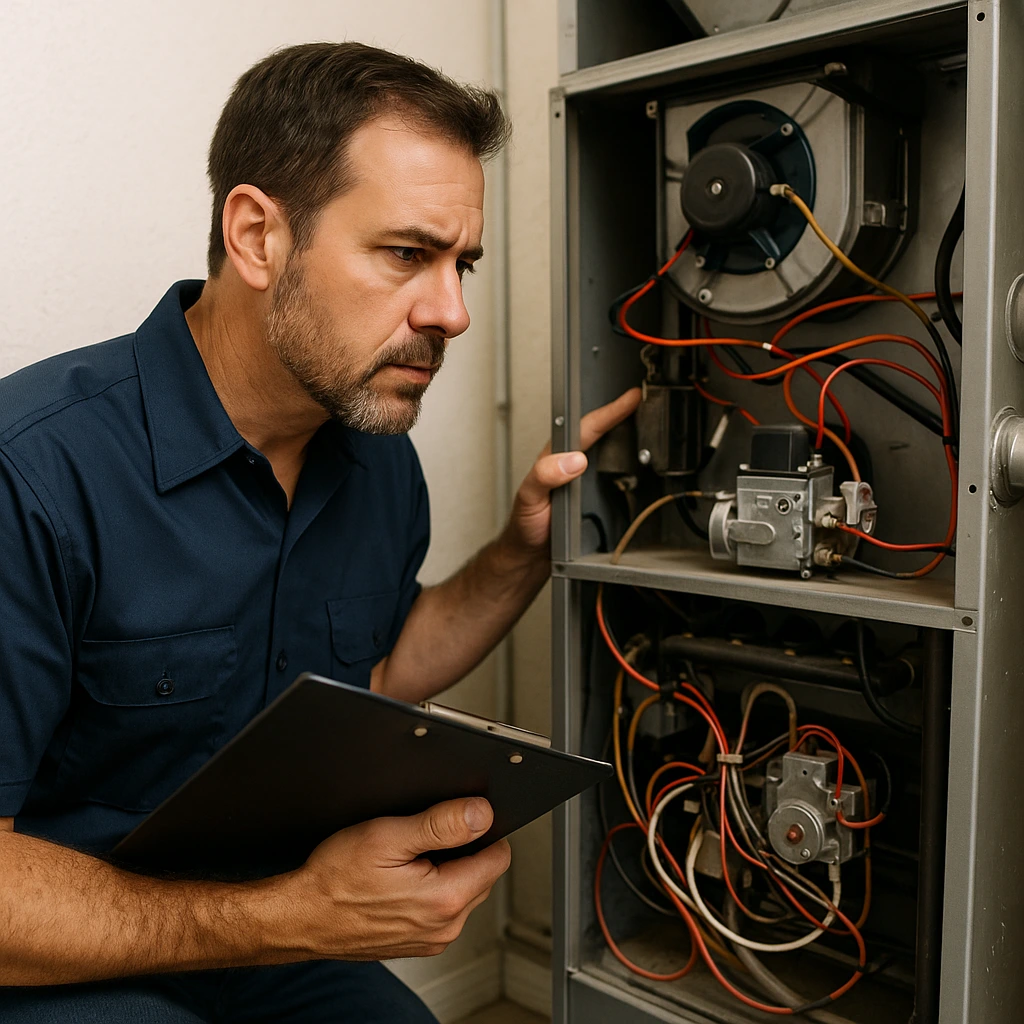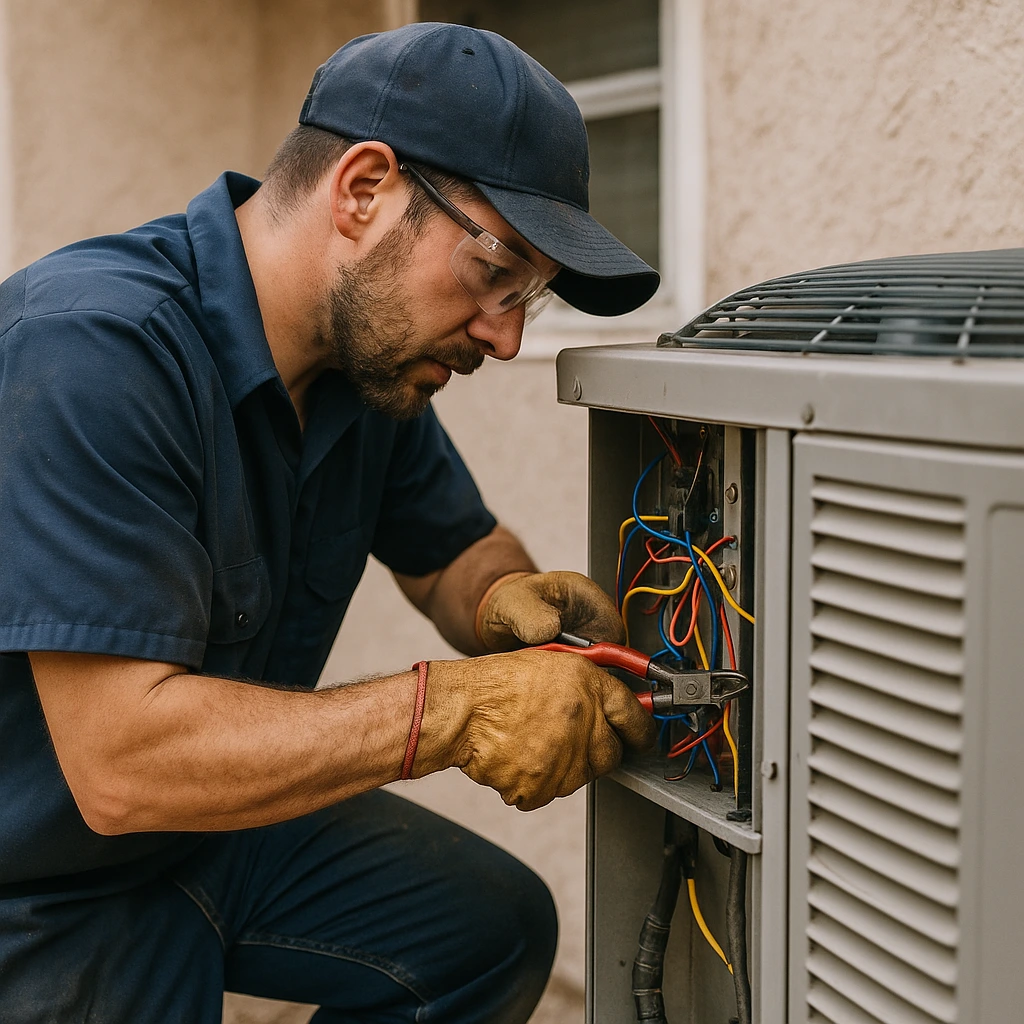Introduction
Welcome to homeownership in Orange Park! As a new homeowner, you’ve likely got a long to-do list—unpacking boxes, setting up utilities, and getting to know your new neighborhood. But one critical aspect of maintaining your home often slips through the cracks: your HVAC system. Heating, ventilation, and air conditioning (HVAC) systems are the backbone of indoor comfort, especially in Florida’s humid climate with its hot summers and mild winters.
This guide is designed to provide HVAC tips for new homeowners like you, helping you avoid common pitfalls in your first year. From understanding the importance of regular maintenance to knowing when to seek professional help, we’ll walk you through everything you need to keep your system running smoothly. Whether you’re a first-time homeowner or a recent transplant to Orange Park, this article will equip you with the knowledge to care for your HVAC system and save money in the long run.

Why HVAC Care Matters for New Homeowners
Your HVAC system does more than just keep you cool in the summer or warm in the winter—it also impacts your energy bills, indoor air quality, and even the longevity of your home’s infrastructure. Neglecting it can lead to costly repairs, inefficient performance, and uncomfortable living conditions.
In Orange Park, where humidity can exacerbate wear and tear on cooling systems, proper care is non-negotiable. A well-maintained HVAC system can last 10–15 years or more, while a neglected one might need replacement in half that time. So, let’s dive into how you can avoid the most common mistakes and set yourself up for success.
Common First-Year HVAC Mistakes to Avoid
As a new homeowner, it’s easy to overlook HVAC maintenance amid the chaos of moving in. Here are some of the most frequent mistakes and how to steer clear of them:
- Ignoring Regular Maintenance: Many homeowners skip annual inspections, leading to undetected issues that snowball into major repairs.
- Setting the Thermostat Incorrectly: Keeping your home too cool in summer or too warm in winter overworks your system, spiking energy costs.
- Neglecting Air Filters: Dirty filters restrict airflow, reduce efficiency, and degrade air quality.
- Blocking Vents and Registers: Furniture or rugs over vents disrupt airflow, forcing your system to work harder.
- Attempting DIY Repairs: Without proper training, DIY fixes can cause more harm than good, often voiding warranties.
By being aware of these pitfalls, you can take proactive steps to keep your system in top shape. Let’s explore how seasonal care can further protect your investment.

Seasonal Tune-Ups: A Must for Orange Park Homeowners
The Importance of Routine Maintenance
Seasonal tune-ups are essential for ensuring your HVAC system operates efficiently year-round. In Orange Park, where summers are sweltering and winters can bring unexpected chills, preparing your system for changing weather is key. A professional tune-up can catch small issues before they become big problems, saving you money and stress.
Orange Park HVAC maintenance typically includes cleaning components, checking refrigerant levels, inspecting ductwork, and testing thermostat functionality. Scheduling these tune-ups in spring (for air conditioning) and fall (for heating) ensures your system is ready for peak usage periods.
Benefits of Seasonal Tune-Ups
- Improved energy efficiency, lowering utility bills.
- Extended lifespan of your HVAC system.
- Better indoor air quality by removing dust and debris.
- Reduced risk of unexpected breakdowns during extreme weather.
For more information on the value of regular HVAC maintenance, check out this resource from the U.S. Department of Energy.
Identifying Early HVAC Issues: AC Troubleshooting Basics
Signs Your System Needs Attention
Catching problems early can prevent costly repairs and uncomfortable days without heat or AC. Here are some common red flags to watch for when it comes to AC troubleshooting and general HVAC performance:
- Unusual Noises: Grinding, banging, or squealing sounds often indicate loose or worn-out components.
- Weak Airflow: If vents blow weak or warm air, it could signal a clogged filter, blocked duct, or failing compressor.
- Frequent Cycling: If your system turns on and off too often, it might be struggling with thermostat issues or improper sizing.
- High Energy Bills: A sudden spike in costs without a change in usage often means inefficiency.
- Uneven Temperatures: Hot or cold spots in your home can point to duct leaks or zoning issues.
What You Can Do
While some issues require a professional, there are simple steps you can take to investigate:
- Check your thermostat settings to ensure they’re correct.
- Inspect air filters for dirt and replace them if needed (more on this later).
- Ensure vents and registers are unobstructed by furniture or curtains.
- Listen for unusual noises and note when they occur to report to a technician.
If these steps don’t resolve the issue, it’s time to call in an expert. Trying to fix complex problems yourself can worsen the damage.

Furnace Filter Guide: When and How to Replace Filters
Why Filters Matter
Air filters are one of the most overlooked yet critical components of your HVAC system. They trap dust, pollen, and other particles, keeping your air clean and your system running efficiently. A dirty filter forces your system to work harder, increasing energy use and wear on components.
This furnace filter guide will help you stay on top of replacements, ensuring your home stays comfortable and your HVAC system lasts longer.
How Often Should You Replace Filters?
The replacement frequency depends on several factors, including filter type, household pets, and local air quality. Here’s a general timeline:
| Filter Type | Recommended Replacement Frequency | Notes |
|---|---|---|
| 1-2 Inch Fiberglass/Disposable | Every 1-3 months | Common in most homes; check monthly if you have pets or allergies. |
| 4-5 Inch Pleated | Every 6-12 months | More durable; ideal for households with moderate dust. |
| HEPA Filters | Every 12 months or as per manufacturer | Best for allergy sufferers; requires professional replacement in some systems. |
In Orange Park, where pollen and humidity are common, checking filters monthly during heavy AC use (summer months) is a good habit. Mark your calendar as a reminder!
Step-by-Step Replacement Guide
- Turn off your HVAC system for safety.
- Locate the filter slot, usually near the air handler or return vent.
- Remove the old filter and note its size and type (often printed on the frame).
- Insert the new filter, ensuring the airflow arrow points in the correct direction.
- Turn your system back on and monitor for improved airflow.
For a visual guide on filter replacement, the EPA’s Indoor Air Quality page offers helpful resources.
When to Call a Professional: Know Your Limits
Signs You Need Expert Help
While some HVAC tasks are manageable for homeowners, others require professional expertise. Here are situations where you should call a pro:
- Refrigerant Issues: Leaks or low levels must be handled by certified technicians due to environmental regulations.
- Electrical Problems: Wiring faults or power issues pose safety risks and require specialized skills.
- Major Component Failures: If your compressor, heat exchanger, or blower motor fails, professional repair or replacement is necessary.
- Persistent Issues: If problems like weak airflow or strange noises don’t resolve after basic checks, a deeper issue may be at play.
Finding Reliable Help in Orange Park
Choosing a qualified technician is crucial. Look for licensed, insured professionals with good reviews and transparent pricing. Below, we’ve compiled a list of trusted local resources to help you get started.

Local HVAC Resources in Orange Park
Trusted HVAC Companies for Maintenance Packages
For new homeowners in Orange Park, signing up for a maintenance package can take the guesswork out of HVAC care. These plans often include bi-annual tune-ups, priority service, and discounts on repairs. Here are some reputable companies offering such services:
| Company Name | Services Offered | Contact Info |
|---|---|---|
| Orange Park Air Conditioning & Heating | Maintenance plans, emergency repairs, system installations | (904) 555-1234 | www.orangeparkhvac.com |
| Comfort Solutions HVAC | Seasonal tune-ups, duct cleaning, energy audits | (904) 555-5678 | www.comfortsolutionsfl.com |
| Florida Cool Pros | Annual maintenance packages, 24/7 support | (904) 555-9012 | www.floridacoolpros.com |
Note: Contact information and websites are placeholders. Please verify details with local listings or the Better Business Bureau (BBB) before hiring.
Additional Community Resources
Beyond private companies, Orange Park offers community programs and resources for homeowners seeking energy efficiency tips or financial assistance for HVAC upgrades. Check out the Town of Orange Park’s official website for local initiatives and utility rebate programs.
Conclusion
As a new homeowner in Orange Park, taking care of your HVAC system might not be the most exciting task on your list, but it’s undoubtedly one of the most important. By following the HVAC tips for new homeowners outlined in this guide—scheduling seasonal tune-ups, replacing filters regularly, and knowing when to call a professional—you can avoid common first-year mistakes and enjoy a comfortable, efficient home.
Remember, proactive care not only saves you money on energy bills and repairs but also extends the life of your system, giving you peace of mind for years to come. As you settle into your new home, build a relationship with a trusted local HVAC provider and stay vigilant for early signs of trouble. Your future self will thank you for investing in the health of your home’s heating and cooling systems. Here’s to many comfortable seasons ahead in Orange Park!
Ready to compare the best HVAC pros in Orange Park? Check out top 10 providers here.
